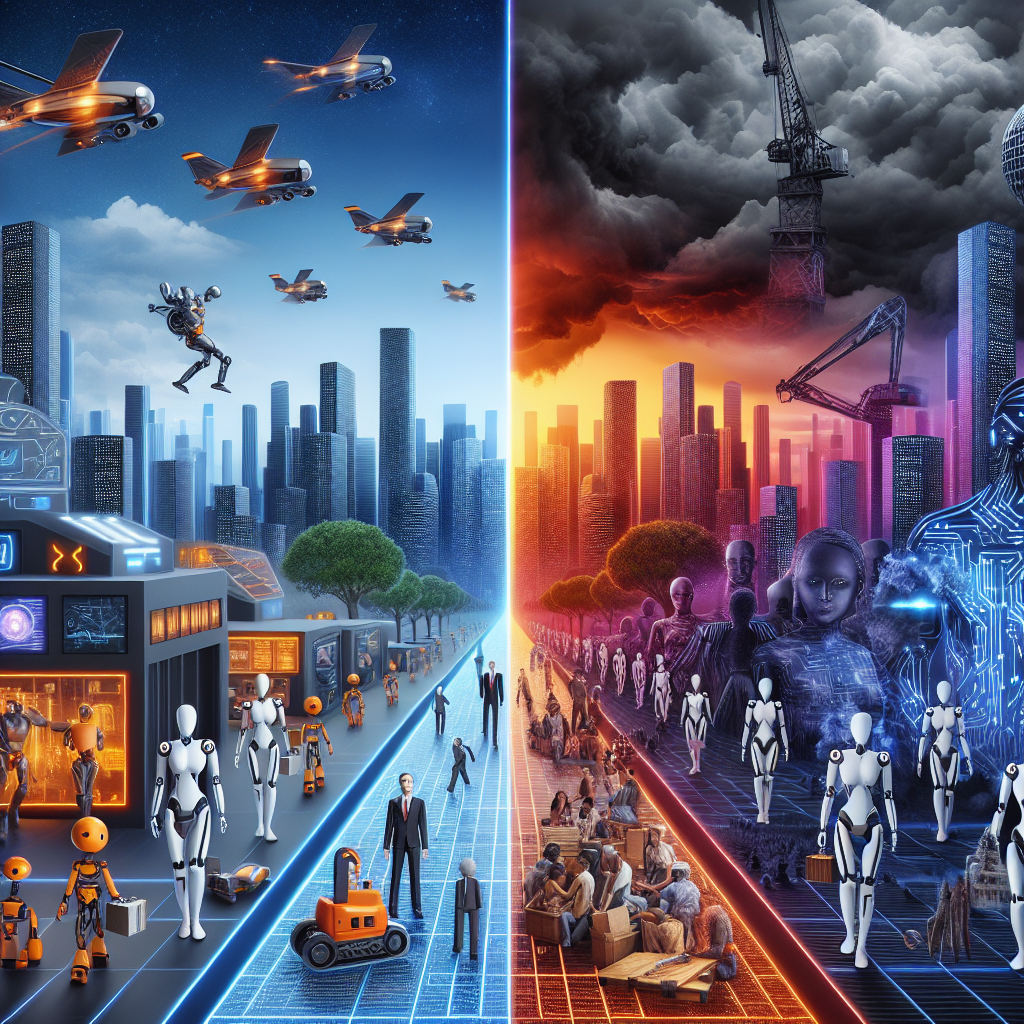AGI: The Future of Artificial Intelligence or a Potential Threat to Humanity?
Artificial General Intelligence (AGI) is a term that refers to the hypothetical ability of a machine to perform any intellectual task that a human can do. This concept is distinct from Narrow AI, which is designed for specific tasks, such as playing chess or driving a car. AGI, if achieved, would have the capacity to understand, learn, and apply knowledge in a broad range of areas, potentially surpassing human intelligence in the process. While the development of AGI holds great promise for advancing technology and solving complex problems, it also raises concerns about its potential impact on society and humanity as a whole.
The Possibilities of AGI
The development of AGI could revolutionize numerous industries and fields, including healthcare, finance, transportation, and education. AGI could assist doctors in diagnosing diseases, help financial analysts make better investment decisions, optimize traffic flow in cities, and personalize educational materials for students. In essence, AGI has the potential to streamline processes, enhance productivity, and improve the quality of life for people around the world.
Furthermore, AGI could lead to significant scientific breakthroughs and discoveries. By processing vast amounts of data and identifying patterns that humans might overlook, AGI could accelerate research in areas such as climate change, space exploration, and medicine. AGI could also aid in the development of new technologies, such as quantum computing and nanotechnology, that have the potential to reshape the way we live and work.
The Challenges of AGI
Despite its numerous benefits, the development of AGI also poses significant challenges and risks. One of the primary concerns is the potential for AGI to outperform humans in various tasks, including decision-making and problem-solving. If AGI surpasses human intelligence, it could lead to job displacement, economic inequality, and social unrest. Additionally, AGI could be used to manipulate or control individuals, invade privacy, and perpetrate cyberattacks.
Another major concern is the ethical implications of AGI. As machines become more intelligent and autonomous, questions arise about their moral responsibility and accountability. Who is responsible if an AGI system makes a harmful decision? How do we ensure that AGI aligns with human values and ethical principles? These ethical dilemmas must be addressed to prevent unintended consequences and ensure that AGI benefits society rather than harms it.
The Potential Threats of AGI
Some experts warn that AGI could pose a significant threat to humanity if not properly controlled or regulated. The concept of a superintelligent AGI, one that surpasses human intelligence by a wide margin, has raised fears of a potential existential risk. A superintelligent AGI could have its own goals and motivations that are incompatible with human values, leading to catastrophic outcomes for humanity.
Additionally, the development of AGI could lead to an arms race among countries and corporations, as they compete to achieve technological superiority. The militarization of AGI could result in the proliferation of autonomous weapons systems that pose a serious threat to global security. Furthermore, the misuse of AGI for malicious purposes, such as surveillance, propaganda, and social control, could undermine democracy and human rights.
The Need for Ethical Guidelines and Regulations
To address these concerns and mitigate the risks associated with AGI, experts advocate for the establishment of ethical guidelines and regulations. These guidelines should ensure that AGI systems are designed and deployed in a way that respects human rights, promotes transparency, and fosters accountability. Additionally, regulations should be put in place to prevent the misuse of AGI for harmful purposes and to promote the responsible development of AI technologies.
Furthermore, collaboration among governments, industry leaders, researchers, and civil society organizations is essential to address the complex challenges posed by AGI. By working together, stakeholders can develop best practices, share knowledge, and build consensus on how to harness the potential of AGI for the benefit of all.
FAQs
Q: What is the difference between AGI and Narrow AI?
A: AGI refers to the ability of a machine to perform any intellectual task that a human can do, while Narrow AI is designed for specific tasks, such as playing chess or driving a car.
Q: What are the potential benefits of AGI?
A: AGI could revolutionize various industries and fields, enhance productivity, accelerate scientific discoveries, and improve the quality of life for people around the world.
Q: What are the potential risks of AGI?
A: AGI could lead to job displacement, economic inequality, social unrest, ethical dilemmas, and existential risks if not properly controlled or regulated.
Q: How can we address the challenges of AGI?
A: By establishing ethical guidelines and regulations, promoting transparency and accountability, fostering collaboration among stakeholders, and ensuring that AGI aligns with human values and ethical principles.

